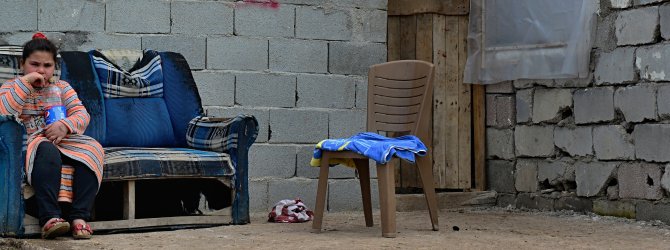-
Democracy's Greyzones
Democracy's Greyzones

There are many things that might surprise you when you’re living abroad. It could be the local cuisine, perceptions about tidiness, or the efficiency of the bureaucracy. Personally, what I always find most inspiring is a country’s people, and the deep and puzzling contrasts that are contained within population groups.
Something particularly wonderful about Jordanians is their willingness to express their opinions on any matter, at any occasion, and even when they do not know their interlocutor. I was recently at a conference where I was introduced to a group of Jordanian university graduates who had participated in European exchange programs. After I mentioned that I completed my Masters degree in Islamic law and human rights, one of them engaged me in a very passionate conversation about religion, rights and democracy. It struck me how often people downplay or aspire to democracy, depending on their background. Coming from Italy, a European country whose democracy has not properly functioned in decades, I am disenchanted with its merits and effectiveness. I listed with ease all the potential faults that a democratic system may have. My newly found conversation partner - a young man, from a young nation, surrounded by warring neighbours and cursed with resource scarcity - argued against me, complete in his belief that democracy was the key to the region’s future, the linchpin of economic growth, a tool for countering extremism and the modality for bringing his generation’s priorities into public policy.
At the onset of the discussion, I believed I had it all figured out. My new acquaintance was idealising democracy, just like most people do today, without critically considering its gaps.
For example, democracies can exclude religious and ethnic minorities from government and decision-making processes. This is why several multi-ethnic and multi-religious countries have introduced election quotas. He pointed out that quotas are difficult to reconcile with the egalitarian basis that democracy is founded upon. If we were all equal, why should selected groups have special treatment? My response was that equality has proven to be more of a moral ideal, rather than a de facto reality. Regardless of what the Universal Declaration of Human Rights says, we are not born equal. All over the world, the poor are treated differently than the rich; individuals are treated differently according to their ethnicity, religion, skin colour, physical features, and disabilities. If equality is at the foundation of democracy, how is it expected to work in the face of everyday inequality? Quota systems protect minorities from the tyranny of majority, which is a real danger of democracy.
As Tocqueville pointed out almost two centuries ago, democracy has two tendencies: the one leading the mind of every man to untried thoughts, the other inclined to prohibit him from thinking at all. The first tendency requires freedom. However, freedom alone is not enough. In order to achieve a functioning democratic system, the human mind must also play a role: it needs to be active, it needs to be creative and original, it cannot be idle or dull. If this condition is not satisfied, the second tendency comes to fruition. Today, the world suffers a drought of originality. This is somewhat because being creative sometimes means to be a minority – a thought minority, but also because people sometimes preference conformism and power, over originality and exclusion.
Then, it hit me. This young man was not idealising democracy. He was well aware of its shortcomings. But he was also aware that of all political systems, for now, democracy is the best guarantor of freedom. But democracy cannot be imposed through laws alone. This is where education comes in. Education geared towards elaborating popular perceptions of rights and duties, mutually constituting behaviours and responsible governance ensures that a democracy is sustainable, efficient and effective.
After my conversation, I felt as if I was the one being conformist - criticising democracy just like the rest of those young liberal Europeans who studied in leftist universities like I did. His optimism did not mean idealisation. His hope did not mean lack of critical thinking. After all, Jordan has made enormous effort to promote political pluralism and greater democratic accountability. So go on, Jordan. The ball is in your court - and the match is looking good.

